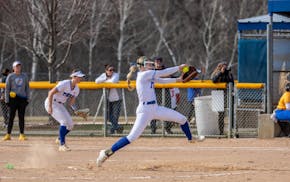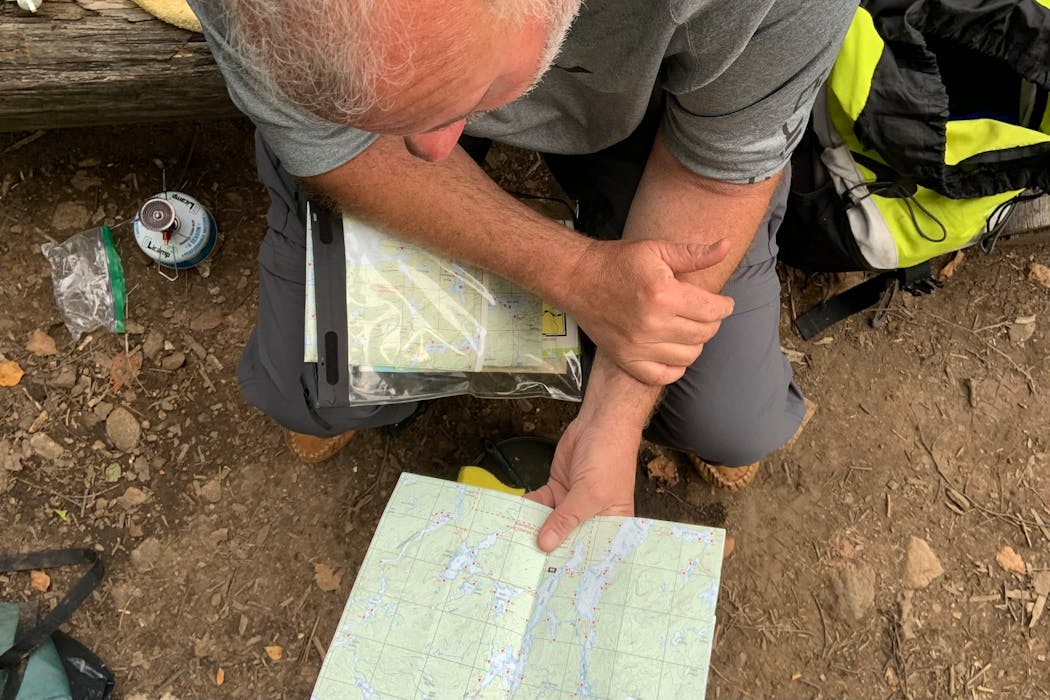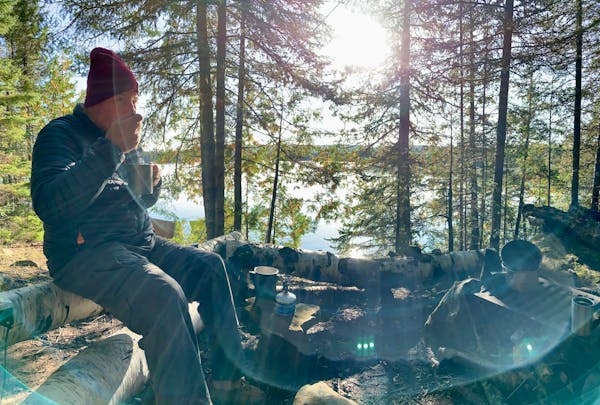In the mind's eye, the million-acre Boundary Waters Canoe Area Wilderness conjures still beauty.
Yet, the thought of securing a permit for its most-visited season when reservations go live at the end of January: Not so much.
Multiple factors have contributed to the tension:
- Year to year, the BWCA's media hype as a destination. (It just landed on both the New York Times and Wall Street Journal's lists of places to visit this year.)
- A reduction of permits in 2022 for the quota season from May through September.
- The urgency created by a first-come, first-served reservation system.
Whether you are new to the BWCA experience, a veteran paddler or somewhere in between, here is some guidance before 9 a.m. (Central time) Jan. 31, when permits go live at recreation.gov:
Number of quota permits is unchanged
The U.S. Forest Service (FS), which manages the BWCA as part of the Superior National Forest, controls the number of visitors by limiting the number of daily permits allowed from each of the wilderness' 70-plus entry points.
Overnight visitors jumped significantly during the pandemic. More than 100,000 visitors took overnight trips alone in 2021 between May and September. That surge, coupled with irresponsible behavior by some campers, moved the FS to act. Beginning in 2022, the FS reduced the number of daily permits by 13%, from 285 to 248.
While the number of visitors declined in 2022 (and 2023 still is being tallied), the permit quota is unchanged for 2024, said FS spokesperson Joy VanDrie. She is hoping for change from some visitors who focus on the same entry points or campsites, popularized by what they read online. Base-camping has put too much wear and tear on parts of the wilderness.
"We seriously urge visitors to truly experience the wilderness by exploring new areas or entry points, traveling farther into the interior, avoiding base-camping, and allowing more days in the trip for that flexibility," she said.
When permits go live, take a breath
It might not be Taylor Swift concert-like, but no doubt there will be a rush to recreation.gov on Jan. 31. (Pro tip: Create an account before the date.)
Some who already have planned trips will lock in their day and entry point, while others might tie up multiple permits.
Regardless, longtime BWCA observers offered a reminder: Permits for popular entries at coveted times will be available as the year unrolls, too.
Some people will call outfitters like Jason Zabokrtsky of Ely Outfitting Co. to help secure a permit in a few weeks, something he said he wasn't experiencing in such volume until a few years ago.
"Our busiest month of booking was June," he said. "January now is triple the booking. It is incredible how much it has changed."
Adam Amato, who runs the popular BWCA.com website and also a private Facebook BWCA group, said the ease of getting online to secure a permit and a small nonrefundable reservation fee also have contributed to people buying up slots they might not use.
Amato reacted to the urgency around permits last year with a tool that alerts his site's users when a permit is canceled and becomes available.
"There are a lot of permits that get dropped," he said. "Every day there are quality permits throughout the summer that are released. [Visitors] in turn drop what they maybe had for another entry point."
Have a plan
Research: There are myriad digital guides to get fundamental knowledge about trip-planning and the uniqueness of wilderness travel, from how to reserve a permit to food storage and the what-ifs of wildfire. Don't dismiss heading to the nearest library for a solid guidebook or two, either.
*FS trip-planning guide: bit.ly/FSBWCAW
*BWCA.com: Extensive entry point data, route guides, lake maps
Call: Connect with an outfitter or one of the FS offices in northern Minnesota after answering some basic questions. Among them: Where do you want to go? What do you want to do? What about members of a group? Permit reservations also can be made by calling 877-444-6777.
Post: Amato suggested what many of his site users and newcomers do: Post a question in the trip-planning forum on the site's message board to get advice about a lake, route, gear idea or a dimension of a trip. "It is a good opportunity to have a longer dialogue about trip options," he said. "It's also an opportunity to get ideas for places away from the most popular entry points."
Get educated — or re-educated
The FS says there is plenty of evidence of visitors who don't understand the principles of Leave No Trace (LNT) in the outdoors, or general wilderness rules (bit.ly/WILDRULES), like what's allowable when collecting firewood or what to do with fish remains.
VanDrie, the agency spokesperson, said the list of "abuses" includes the noise of Bluetooth speakers, to burning garbage, to hacking green limbs. She said the agency's three-part LNT video series — protocol for ranger stations, some outfitters and other permit issuers — remains must-viewing. The videos are online on YouTube on the Forest Service channel.
"We are still seeing so much resource damage out there easily avoided for some with proper education," she added.
Alternatives to the BWCA
Remember, there are other places in the Superior National Forest and on other Minnesota public lands where you can have similar camping experiences.
From the Crane Lake area east to Grand Marais, there are 23 fee campgrounds. Also, there are smaller, rustic campgrounds that still have basic amenities like toilets, fire rings and a picnic table but lack drinking water. The National Forest has more than 250 backcountry sites that don't require permits or fees, and dispersed camping is allowed in many parts of the forest outside of designated areas. (bit.ly/FSCAMPSITES)

Samuelson hopes to find a home with Lynx

Reusse: Wolves' success noticed by Minnesota hoops royalty

Vikings sign Van Ginkel to contract extension through 2026

High school softball: Minnetonka deserves a spot in this week's Top 25



